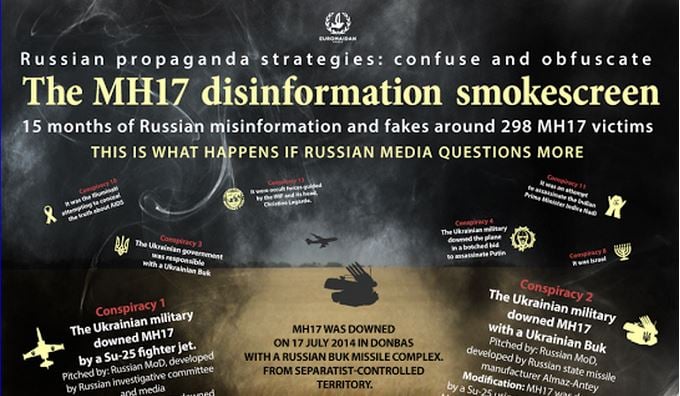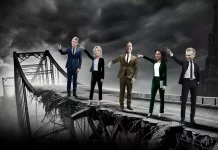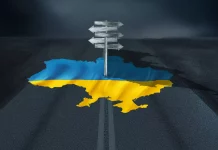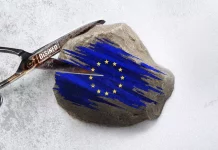Weekly update on Kremlin disinformation efforts in Europe
- Junior analyst Vlaďka Vojtíšková from the European Values think-tank co-authored a research paper published by the Martens Centre. The paper focuses on organisations which operate in Europe and are funded by the Russian government with the aim to influence public opinion. It recommends, among other measures, fostering the EU’s own narrative, which is based on human rights, freedom and equality; supporting the pro-democratic civil society, so that Europeans become more resistant to Russian propaganda; and increasing transparency requirements for NGOs and lobbyists by setting up a mandatory lobbying register at the EU level.
- The report commissioned by the World Anti-Doping Agency confirmed that the Kremlin ran a covert doping program for the Russian Olympians and other elite athletes, with the help of F.S.B., the state security agency. President Vladimir Putin suggested that the accusations are politicized and possibly pushed by the United States within their anti-Russian politics. He also said that Russia would suspend all people named in the report and complete its own investigation. Russian news channels and RT focused on accusations of an anti-Russia propaganda war in their reporting.

NATO as an aggressor plotting against Russia and the EU being on the verge of dissolution after the Brexit referendum continue to be dominant topics according to both Disinformation Review by the EEAS East StratCom Task Force and the Information War Monitor for Central Europe published by the GLOBSEC Policy Institute.
Picture of the week
Euromaidan Press published a comprehensive guide to MH17 conspiracies.

Kremlin Watch reading suggestions
“The Possibility of Societal Destabilization in Latvia”; research undertaken by the National Defence Academy of Latvia in order to find out what the potential is for the application of non-military means in Latvia to achieve goals which are hostile to the state.
There are two distinct divisions in Latvian society, specifically within the ethnic structure and the estrangement between society and the state. Russia’s Compatriot Policy attempts to use this to Russia’s advantage, helps ethnic Russians maintain their connection with Russia, and tries to discredit the state of Latvia by describing the economic situation as “catastrophic.” Different groups in the Latvian society support those narratives on different levels but no group is immune to them.
Although there are differences in political views between the Latvian and the Russian speaking residents of Latvia – and Russian speakers tend to be more pro-Russian – still about half of Latvia’s Russian speakers and non-citizens do not support Russia’s narratives. Regardless of the first language, there is a high dissatisfaction with political and economic situation in Latvia. Furthermore, due to the low level of political activism, the possibility of mass protests and broad active support for provocations started by Russia remains unlikely.
The impact of Russia’s media, however, has an influence on the Russian speaking audience, while the media content in Latvian language does not reach almost half of them. The communication with Russian citizens should be strengthened including an explanation of Latvia’s policies in the EU and NATO context. It is important to focus on the Latvian media space, providing Latvia’s media broadcasts throughout the country, and expanding and improving its content.
Euroatlantic Experts on Disinformation Warfare
- Todd Wood focuses in The Washington Times on the other aspect of hybrid warfare, specifically the financial operations, in case of Moldova.
- Peter Dickinson argues in his article for The Atlantic Council that Ukraine should focus more attention on emotional engagement by interacting with international audiences in strategic ways in order to win the information war.
- Peter Pomerantsev discusses the meaning of the truth and the reasons why so many disinformation campaigns are successful in his commentary on StopFake.org.
Current state of pro-Kremlin scene in the Czech Republic
- Recently, several disinformation reports concerning the migration crisis have occurred.
- According to several websites, which misinterpreted the words of the Czech intelligence services employee, a terrorist attack by Islamic fundamentalists presents an immediate threat to the Czech Republic.
- By taking information out of the context, the pro-Kremlin websites spread disinformation about an alleged plan of the EU to suspend Switzerland from the free market zone in connection with an alleged Swiss decision to close the borders for migrants from the Middle East. In reality, the Swiss decision, which was been made in 2014, deals with work migration and the reason for it was a conflict with the free movement agreement for the EU citizens.
- And of course, migration wave was orchestrated by the US.
- The European Union, according to the pro-Kremlin websites, plans to build a common European army, with the aim to disarm nation states and free the way to more migrants heading to Europe. Also, the EU wishes to use this army to expand to the Middle East and South Africa.

Kremlin Watch is a strategic program of the European Values think-tank, which aims to unravel and confront instruments of Russian hybrid war which is focused against liberal-democratic system. Find out more at www.europeanvalues.net/





